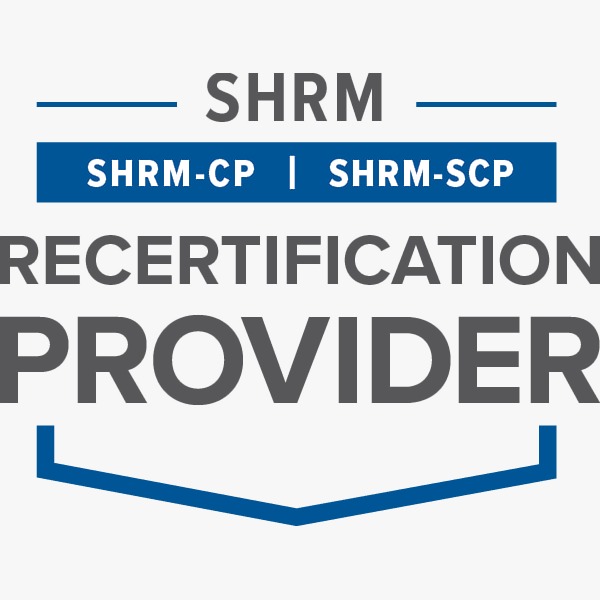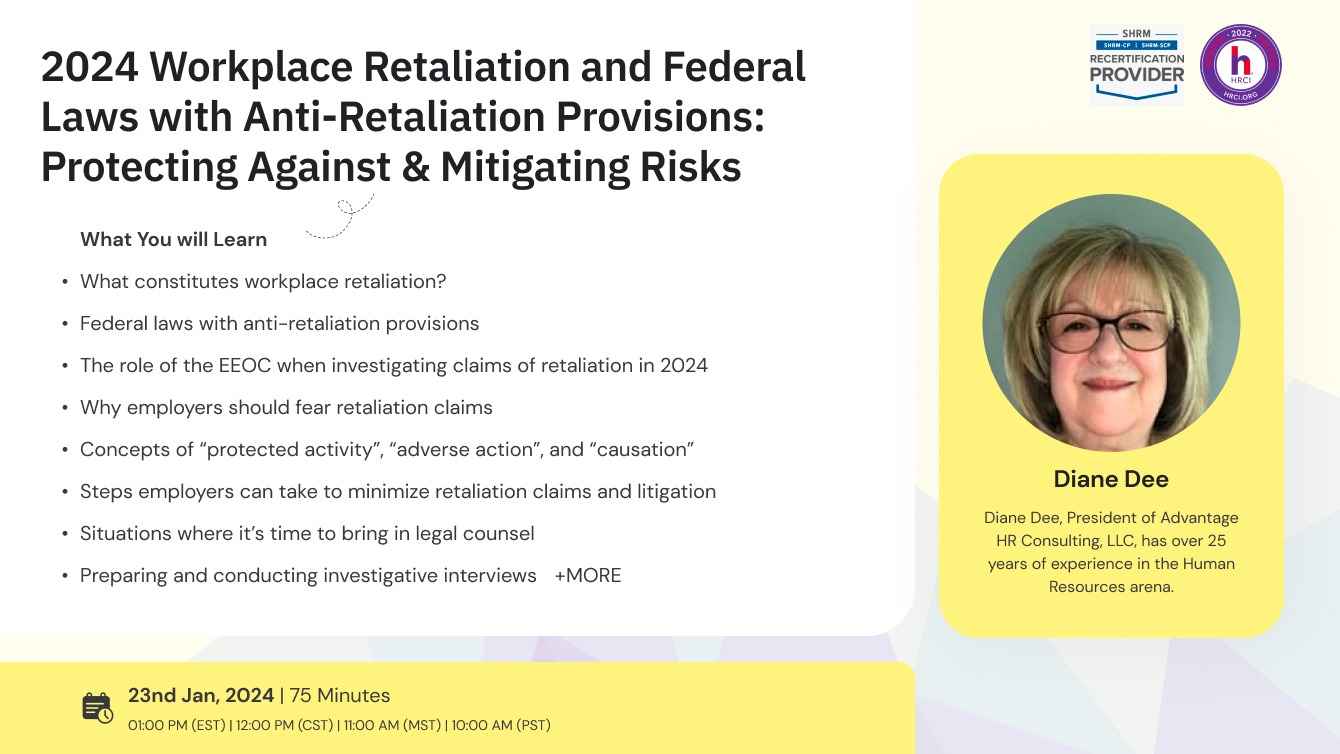- Topics
- Webinars
- Products & Services
Welcome To Biggest Online compliance Platform By LOCGFX Pvt. Ltd.
Human Resource & Payroll
According to EEOC statistics, the frequency with which employees allege claims of retaliation has increased dramatically over the past decade. In 2008, approximately 34 percent of all complaints filed with the EEOC included an allegation of retaliation. By 2020, that number increased to more than 55 percent. This dramatic increase means workplace retaliation claims have become one of the most frequently filed claims in employment-related lawsuits.
In most cases, claims of employer retaliation begin with a complaint of a different sort – a report of perceived workplace harassment or discrimination. The law prohibits taking any adverse action against an employee or applicant for engaging in this type of “protected activity,” even if it later turns out the original complaint was unfounded. In most cases, the action is considered retaliatory if the employee’s complaint was a motivating factor in the subsequent employment decision.
- What constitutes workplace retaliation?
- Federal laws with anti-retaliation provisions
- The role of the EEOC when investigating claims of retaliation in 2024
- Why employers should fear retaliation claims
- Identifying workplace retaliation
- Elements of a valid retaliation claim
- Concepts of “protected activity”, “adverse action”, and “causation”
- Steps employers can take to minimize retaliation claims and litigation
- Investigating retaliation complaints
- Situations where it’s time to bring in legal counsel
- Appointing the right investigator
- Preparing and conducting investigative interviews
- Importance of having solid documentation
- Advice for employees when filing an EEOC claim
The manner in which an employer handles the employee’s reported concerns – and thereafter addresses other matters related to the complaining employee – often determines whether the employee will later claim he or she was retaliated against for having made the report. So, how can employers protect against allegations of retaliation by employees who initiate or participate in complaints of harassment or discrimination? Join us to learn the information you need to assist your organization in preventing and mitigating risks of retaliation in 2024.
- Senior Leadership
- Human Resources Directors
- HR Managers
- HR Representatives
- Operations Professionals
- Compliance Professionals
- Recruiting Professionals
- Managers
- Supervisors
- Employees

Diane holds a Master Certificate in Human Resources from Cornell University’s School of Industrial and Labor Relations and has attained SPHR, SHRM-SCP, sHRBP, and HRPM® certification.
Diane is a member of the National Association of Women Business Owners and the Society for Human Resource Management. Additionally, Diane performs pro bono work through the Taproot Foundation, assisting non-profit clients by integrating their Human Resources goals with their corporate strategies.

SHRM -
Compliancevent is recognized by SHRM to offer Professional Development Credits (PDCs) for the SHRM-CPSM or SHRM-SCPSM. This program is valid for 1.25 PDCs for the SHRM-CPSM or SHRM-SCPSM. For more information about certification or recertification, please visit - portal.shrm.org.

HRCI -
This webinar has been approved for 1.25 HR (General) re-certification credit hours toward California, GPHR, HRBP, HRMP, PHR, and SPHR recertification through the HR Certification Institute.
The use of this seal is not an endorsement by the HR Certification Institute of the quality of the activity. It means that this activity has met the HR Certification Institute’s criteria to be pre-approved for re-certification credit.
Sign up now on compliancevent.net. Visit compliancevent.net/webinar to discover a wide range of webinars from industry specialists. Tick on either ‘live webinar’ or ‘on-demand’, and simply click on ‘buy now’ to get enrolled.
You can refer compliancevent to anyone in your social circle. Explore your industry with your colleagues by getting them signed up on compliancevent.net today!
Go for the topic of your keen interest on compliancevent.net. Tick on ‘live webinar’ and get enrolled! Easy registration, transparent transaction.
You can request for an on-demand webinar that records the live webinar for you. After the webinar ends, you will have full access to the webinar’s recording. You can also explore compliancevent offline to order your webinar DVDs, flash drives and transcripts.
If you can’t attend the live webinar, simply go for the ‘on-demand webinar’ for the same price! Now, the live webinar recording will be saved in a cloud storage for you to access anytime from anywhere.
compliancevent offers both hard and soft copies of the webinars. It contains all the highlights as well as comprehensive descriptions of the webinar, so you never miss out a single detail.
After attending the live webinar, your certificate will be emailed to you. You can download it and add more charm to your professional score.
At the end of each webinar, you have the opportunity to interact with your industry experts, where you will get answers to all your queries.
Can’t attend the live webinar? compliancevent has got you covered! You can always switch to the on-demand webinar from your portal. You can also get your hands on the webinar’s DVD/flash drive and transcript. So order them now!
compliancevent brings a variety of options for offline learning. Order your DVDs, flash drives or transcripts now to have a lifetime access to compliancevent webinars. You can also go for on-demand recordings. Download and watch it anytime from anywhere in the world!
